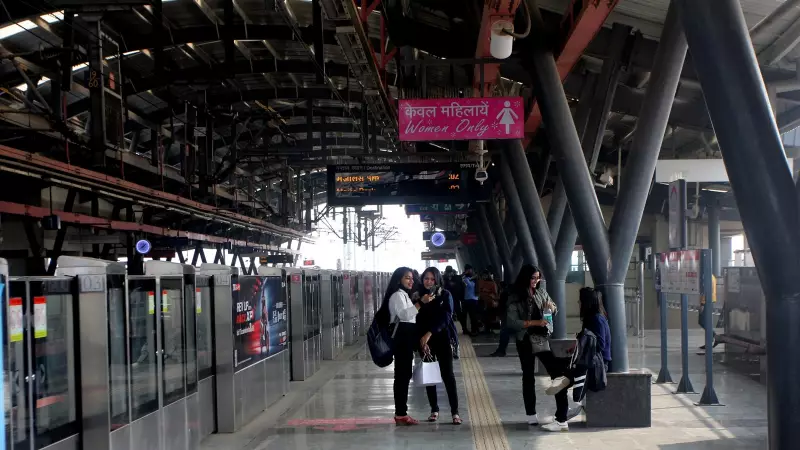
A comprehensive study examining women's safety in the Delhi Metro has uncovered disturbing deficiencies in the security infrastructure that's supposed to protect millions of daily commuters. The findings paint a concerning picture of the actual safety conditions in what is considered one of India's most modern public transport systems.
Broken Eyes: The CCTV Failure
One of the most alarming discoveries involves the surveillance system. Multiple CCTV cameras across various metro stations were found to be either non-functional, poorly maintained, or positioned incorrectly. These "blind spots" in surveillance coverage create vulnerable areas where incidents could occur without being recorded.
Station Security: More Gap Than Guard
The study highlighted significant shortcomings in station security arrangements. Many stations lack adequate security personnel, especially during non-peak hours. The existing security infrastructure fails to provide comprehensive coverage, leaving several areas poorly monitored and potentially unsafe for women travelers.
Lighting and Infrastructure Concerns
Beyond cameras and security personnel, the research identified problems with inadequate lighting in certain sections of stations, including parking areas, corridors, and less-frequented exits. Poor illumination creates an environment where women feel vulnerable, especially during early morning or late evening travel.
Maintenance and Monitoring Gaps
The study also pointed to systemic issues in maintenance protocols and real-time monitoring of security equipment. Regular checks and prompt repairs of safety equipment appear inconsistent, raising questions about the effectiveness of current maintenance schedules.
What This Means for Daily Commuters
For the thousands of women who rely on the Delhi Metro daily, these findings are particularly troubling. The identified safety gaps undermine confidence in what should be a secure public transportation option. Many female commuters express that while they generally feel safer in the metro compared to other transport modes, these revelations are cause for concern.
The Way Forward
The study concludes with urgent recommendations for addressing these safety issues, emphasizing that technological infrastructure alone cannot guarantee safety without proper maintenance, monitoring, and human oversight. The findings call for immediate action to restore public confidence in the system's security measures.






